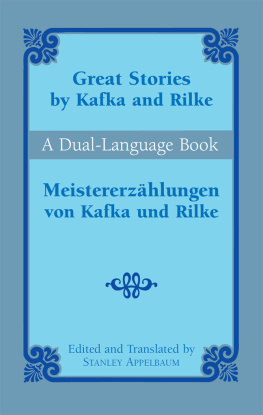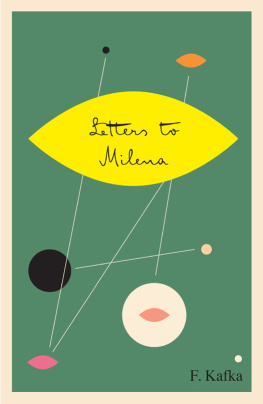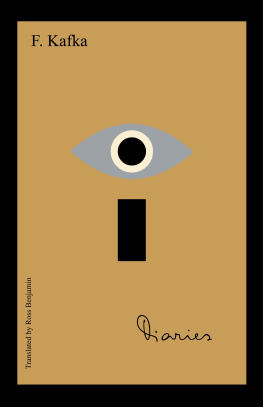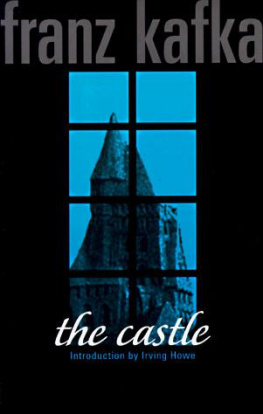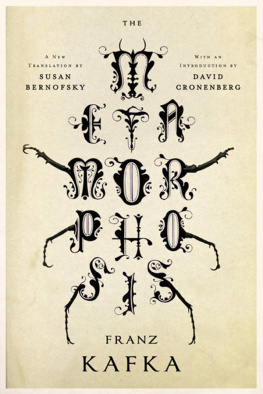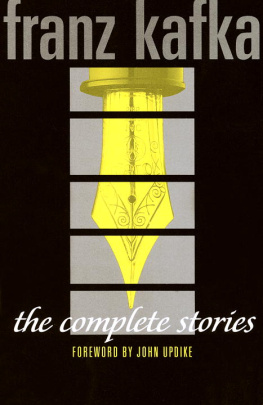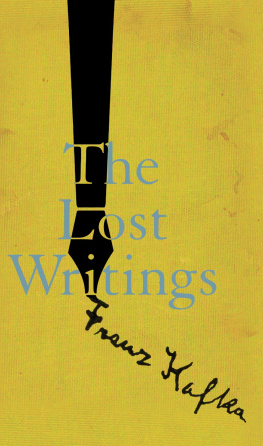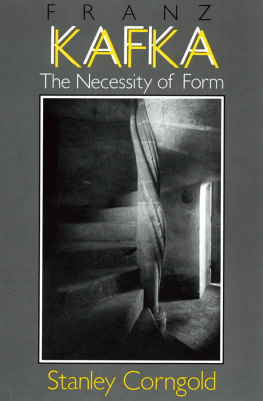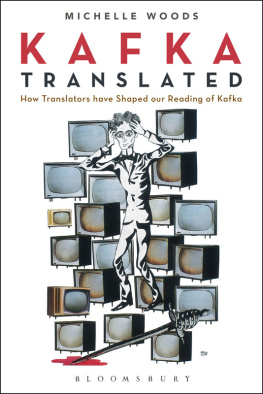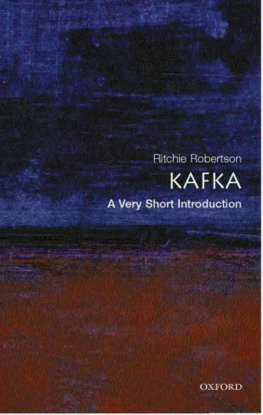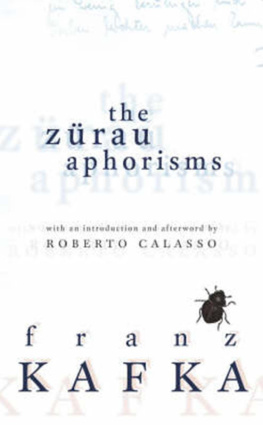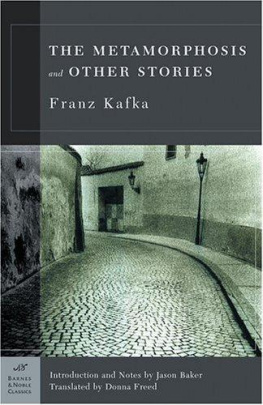Franz Kafka - The Trial: A New Translation Based on the Restored Text
Here you can read online Franz Kafka - The Trial: A New Translation Based on the Restored Text full text of the book (entire story) in english for free. Download pdf and epub, get meaning, cover and reviews about this ebook. year: 1924, publisher: Schocken, genre: Detective and thriller. Description of the work, (preface) as well as reviews are available. Best literature library LitArk.com created for fans of good reading and offers a wide selection of genres:
Romance novel
Science fiction
Adventure
Detective
Science
History
Home and family
Prose
Art
Politics
Computer
Non-fiction
Religion
Business
Children
Humor
Choose a favorite category and find really read worthwhile books. Enjoy immersion in the world of imagination, feel the emotions of the characters or learn something new for yourself, make an fascinating discovery.

- Book:The Trial: A New Translation Based on the Restored Text
- Author:
- Publisher:Schocken
- Genre:
- Year:1924
- Rating:5 / 5
- Favourites:Add to favourites
- Your mark:
- 100
- 1
- 2
- 3
- 4
- 5
The Trial: A New Translation Based on the Restored Text: summary, description and annotation
We offer to read an annotation, description, summary or preface (depends on what the author of the book "The Trial: A New Translation Based on the Restored Text" wrote himself). If you haven't found the necessary information about the book — write in the comments, we will try to find it.
The Trial: A New Translation Based on the Restored Text — read online for free the complete book (whole text) full work
Below is the text of the book, divided by pages. System saving the place of the last page read, allows you to conveniently read the book "The Trial: A New Translation Based on the Restored Text" online for free, without having to search again every time where you left off. Put a bookmark, and you can go to the page where you finished reading at any time.
Font size:
Interval:
Bookmark:
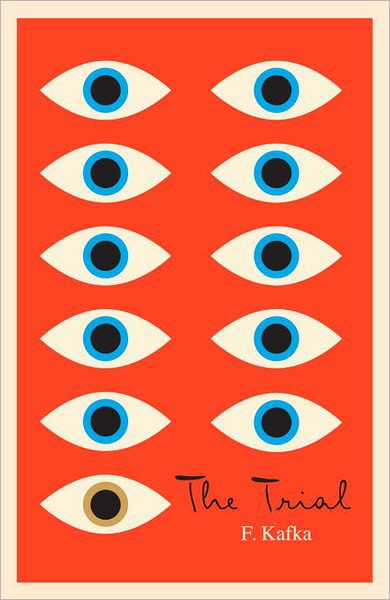
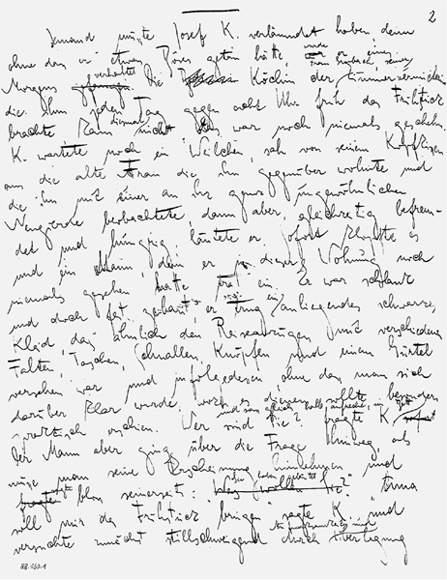
The first page of Kafkas manuscript of The Trial.
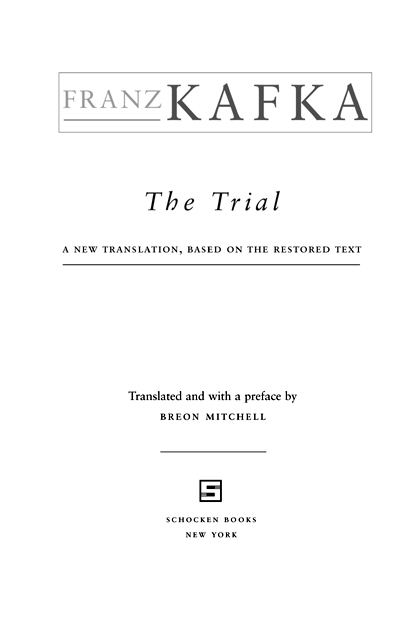
Copyright 1998 by Schocken Books Inc.
Preface copyright 1998 by Breon Mitchell
All rights reserved under International and Pan-American
Copyright Conventions. Published in the United States by Schocken Books Inc., New York, and simultaneously in Canada by Random House of Canada Limited, Toronto. Distributed by Pantheon Books, a division of Random House, Inc., New York.
Originally published in German as Der Prozess by Verlag die Schmiede, Berlin, 1925, by Schocken Verlag, Berlin, 1935, and by Schocken Books Inc., New York, 1946. Copyright 1925 by Verlag die Schmiede. Copyright renewed 1952 by Schocken Books Inc. Copyright 1935 by Schocken Verlag. Copyright renewed 1963 by Schocken Books Inc. Copyright 1946 and renewed 1974 by Schocken Books Inc. This critical edition was originally published in Germany by S. Fischer Verlag GmbH, Frankfurt am Main, in 1990. Copyright 1990 by Schocken Books Inc. This translation was originally published in hardcover by Schocken Books in 1998.
Schocken and colophon are trademarks of Random House, Inc.
Library of Congress Cataloging-in-Publication Data
Kafka, Franz 18831924.
[Prozess. English]
The Trial / Franz Kafka; a new translation, based on the restored text; translated and with a preface by Breon Mitchell.
p. cm.
eISBN: 978-0-307-82944-3
I. Mitchell, Breon. II. Title
PT2621.A6P7613 1998
833.912dc21 98-3447
Random House Web Address: www.randomhouse.com/
v3.1

Then Frulein Brstner
The Student
The Offices
Leni
Manufacturer
Painter
Dismissal of the Lawyer

Dearest Max, my last request: Everything I leave behind me in the way of diaries, manuscripts, letters (my own and others), sketches, and so on, [is] to be burned unread. Yours, Franz Kafka
These famous words written to Kafkas friend Max Brod have puzzled Kafkas readers ever since they appeared in the postscript to the first edition of The Trial, published in 1925, a year after Kafkas death. We will never know if Kafka really meant for Brod to do what he asked; Brod believed that it was Kafkas high artistic standards and merciless self-criticism that lay behind the request, but he also believed that Kafka had deliberately asked the one person he knew would not honor his wishes (because Brod had explicitly told him so). We do know, however, that Brod disregarded his friends request and devoted great energy to making sure that all of Kafkas workshis three unfinished novels, his unpublished stories, diaries, and letterswould appear in print. Brod explained his reasoning thus:
My decision [rests] simply and solely on the fact that Kafkas unpublished work contains the most wonderful treasures, and, measured against his own work, the best things he has written. In all honesty I must confess that this one fact of the literary and ethical value of what I am publishing would have been enough to make me decide to do so, definitely, finally, and irresistibly, even if I had had no single objection to raise against the validity of Kafkas last wishes. (From the Postscript to the first edition of The Trial)
In 1925, Max Brod convinced the small avant-garde Berlin publisher Verlag die Schmiede to publish The Trial, which Brod prepared for publication from Kafkas unfinished manuscript. Next he persuaded the Munich publisher Kurt Wolff to publish his edited manuscript of The Castle, also left unfinished by Kafka, in 1926, and in 1927 to bring out Kafkas first novel, which Kafka had meant to entitle Der Verschollene (The Man Who Disappeared), but which Brod named Amerika. The first English translation of The Trial, by Edwin and Willa Muir (who had already translated The Castle in 1930), appeared in 1937 simultaneously in England and the United States, the latter edition published by Knopf with illustrations by Georg Salter. Neither the German nor the English-language editions sold well, although they were critically well received.
Undeterred, Max Brod enlisted the support of Martin Buber, Andr Gide, Hermann Hesse, Heinrich Mann, Thomas Mann, and Franz Werfel for a public statement urging the publication of Kafkas collected works as a spiritual act of unusual dimensions, especially now, during times of chaos. Since Kafkas previous publishers had closed during Germanys economic depression, he appealed to Gustav Kiepenheuer to undertake the project. Kiepenheuer agreed, but on condition that the first volume be financially successful. But the Nazi rise to power in 1933 forced Kiepenheuer to abandon his plans. Between 1933 and 1938 German Jews were barred from teaching or studying in German schools, from publishing or being published in German newspapers or publishing houses, or from speaking and performing in front of German audiences. Publishers that had been owned or managed by Jews, such as S. Fischer Verlag, were quickly Aryanized and ceased to publish books by Jews. Kafkas works were not well enough known to be banned by the government or burned by nationalist students, but they were Jewish enough to be off limits to Aryan publishers.
When the Nazis introduced their racial laws they exempted Schocken Verlag, a Jewish publisher, from the ban against publishing Jewish authors on condition that its books would be sold only to Jews. Founded in 1931 by the department store magnate Salman Schocken, this small publishing company had already published the works of Martin Buber and Franz Rosenzweig as well as those of the Hebrew writer S. Y. Agnon as part of its owners interest in fostering a secular Jewish literary culture.
Max Brod offered Schocken the world publishing rights to all of Kafkas works. This offer was initially rejected by Lambert Schneider, Schocken Verlags editor in chief, who regarded Kafkas work as outside his mandate to publish books that could reacquaint German Jewry with its distinguished heritage. He also doubted its public appeal. His employer also had his doubts about the marketability of six volumes of Kafkas novels, stories, diaries, and letters, although he recognized their universal literary quality as well as their potential to undermine the official campaign to denigrate German Jewish culture. But he was urged by one of his editors, Moritz Spitzer, to see in Kafka a quintessentially Jewish voice that could give meaning to the new reality that had befallen German Jewry and would demonstrate the central role of Jews in German culture. Accordingly, Before the Law, an anthology drawn from Kafkas diaries and short stories, appeared in 1934 in Schocken Verlags Bucherei series, a collection of books aimed to appeal to a popular audience, and was followed a year laterthe year of the infamous Nuremburg Lawsby Kafkas three novels. The Schocken editions were the first to give Kafka widespread distribution in Germany. Martin Buber, in a letter to Brod, praised these volumes as a great possession that could show how one can live marginally with complete integrity and without loss of background. (From
Font size:
Interval:
Bookmark:
Similar books «The Trial: A New Translation Based on the Restored Text»
Look at similar books to The Trial: A New Translation Based on the Restored Text. We have selected literature similar in name and meaning in the hope of providing readers with more options to find new, interesting, not yet read works.
Discussion, reviews of the book The Trial: A New Translation Based on the Restored Text and just readers' own opinions. Leave your comments, write what you think about the work, its meaning or the main characters. Specify what exactly you liked and what you didn't like, and why you think so.

